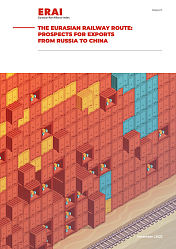According to Shanghai Customs, the «Shanghai Express» will be loaded with apparel, auto parts, solar panels, tableware, furniture, daily necessities, machine parts and other goods.
It will leave China via the Alataw Pass (Alashankou) in the Xinjiang Uygur Autonomous Region and arrive in Hamburg about two weeks later, traveling by way of Kazakhstan, Russia, Belarus and Poland.
Shanghai Customs said, trains along this route will run regularly every week, while new routes will be opened, providing new logistics options for enterprises at home and abroad.
Eastbound train from Europe to Shanghai in mid-October
The first train will return to Shanghai from Europe in mid-October, on which exhibits of some European countries that will participate in the fourth China International Import Expo, will be loaded.
Wang Jinqiu, the president of a domestic cargo company said that the train will save two weeks of transportation time. It will be half of the time of ocean freight. Moreover, the logistics cost of each standard container is as much as 30% cheaper.
At present, the China-Europe freight trains have become an important mode of transportation through the supply chain of Central Europe and Central Asia, Zhao Honglin, an official from of Shanghai Customs said.
Zhao added that the launch of the «Shanghai» train will alleviate the current limited capacity throughout international capacity and enhance Shanghai’s global resource allocation capacity, against the soaring prices of global maritime and air transport due to the epidemic.
Zhao said that the new train will enter a regular, high-frequency operation following its maiden journey. Shanghai Customs will continue to optimize and improve operational guidelines, in order to ensure the safe and smooth operation of the China-Europe train.




